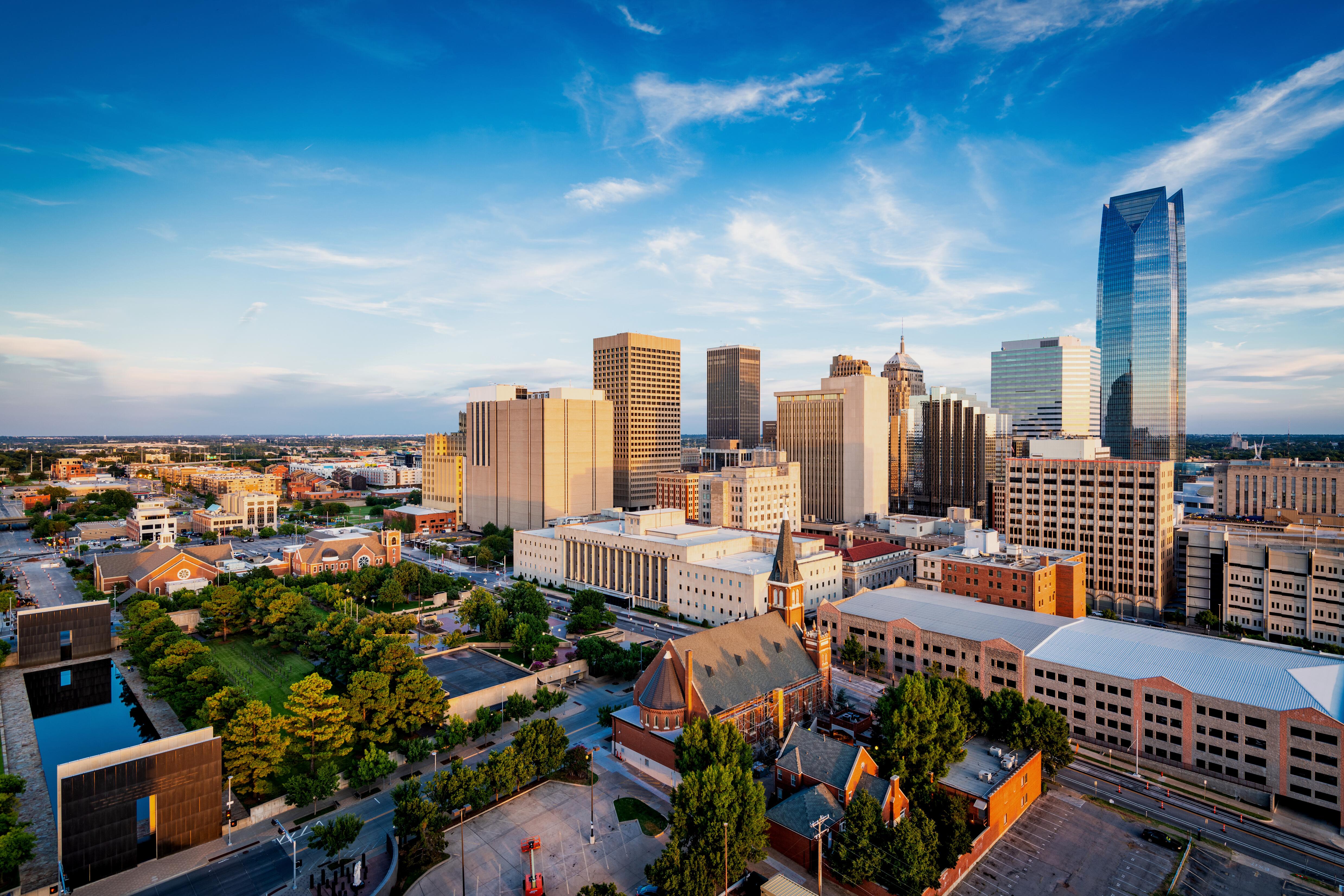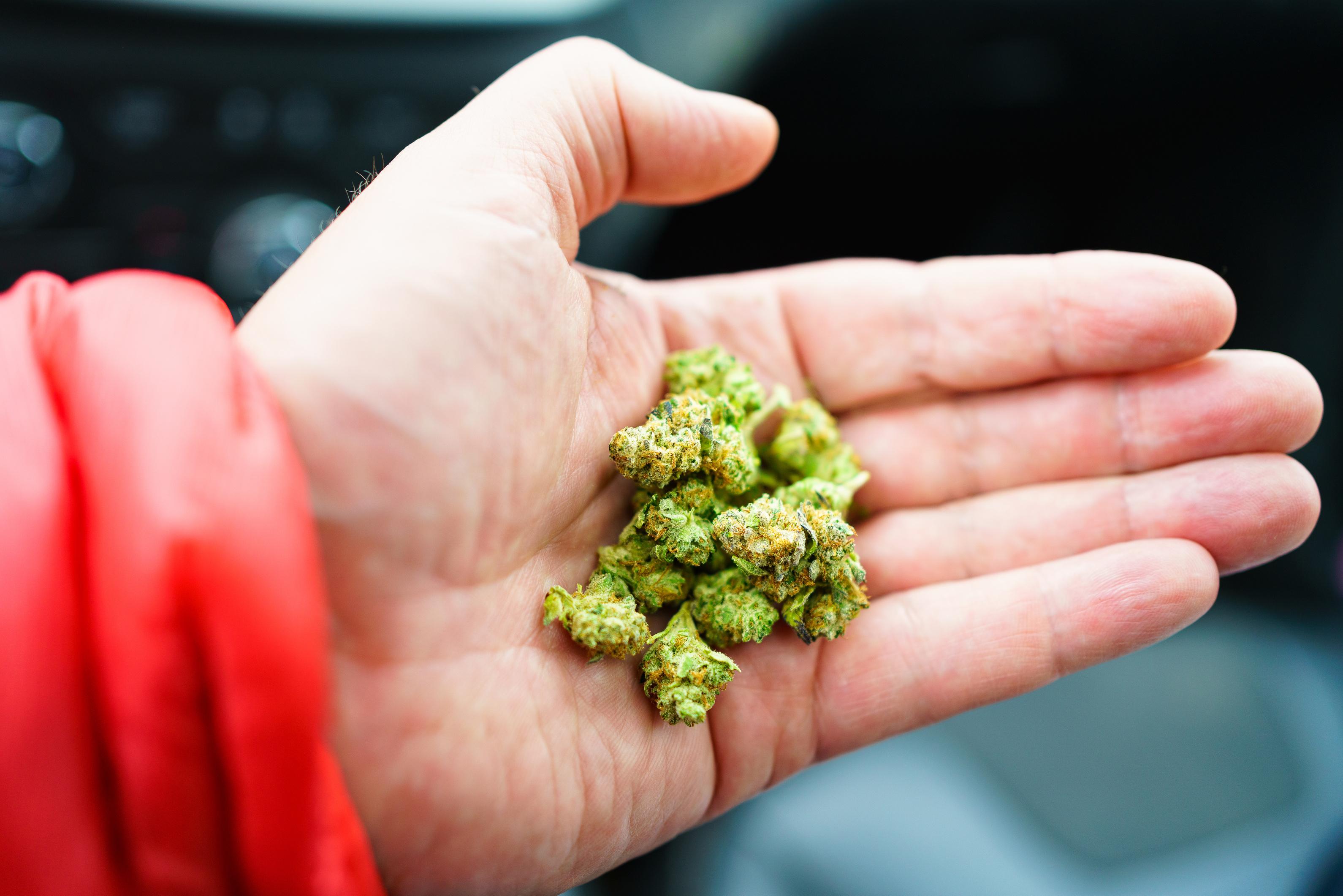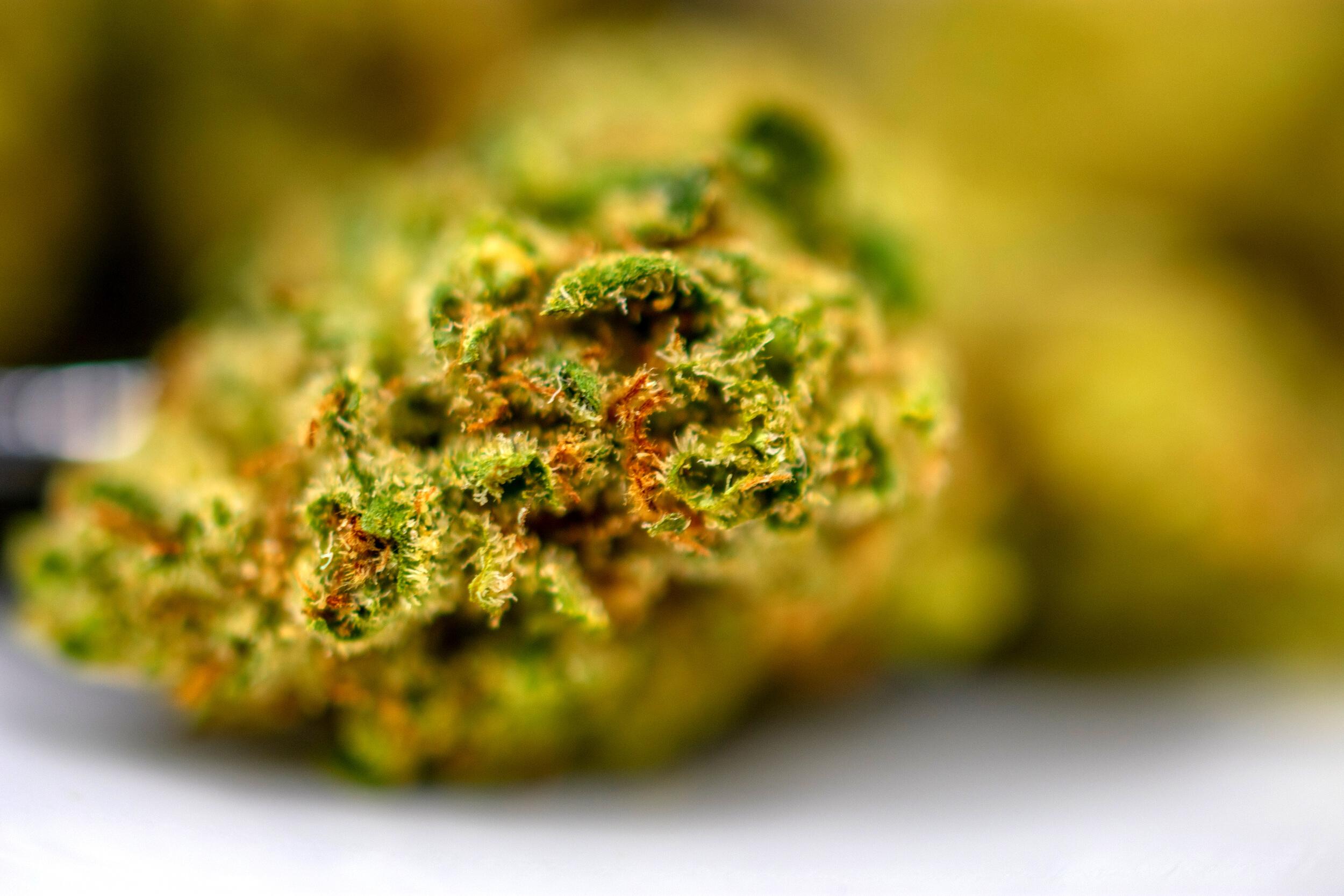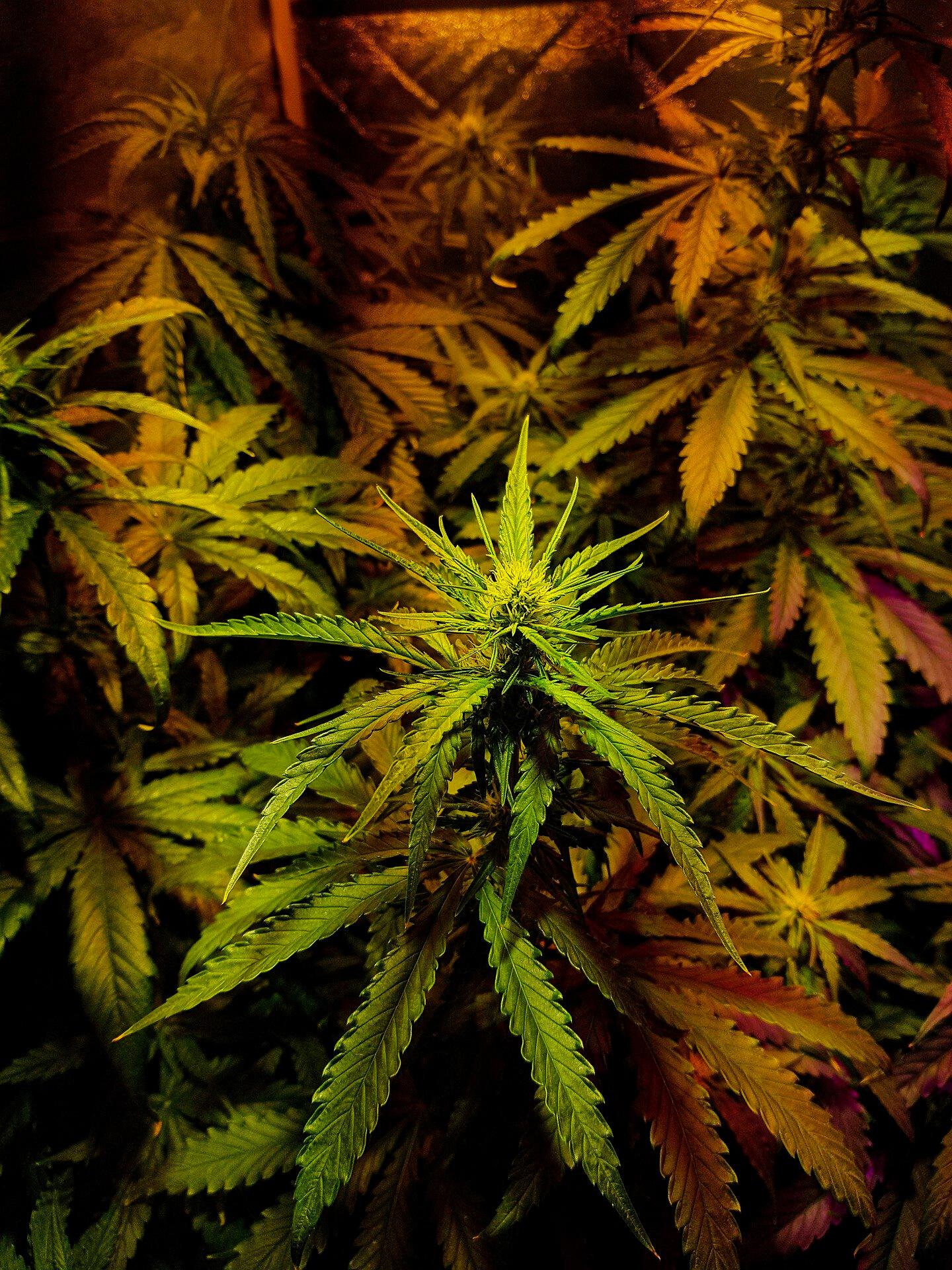
5 minute read
OKLAHOMA #1 SUPPLIER?
Is Oklahoma the #1 Supplier OF ILLEGAL MARIJUANA?
BY CHYNNA PEARSON
Advertisement
As marijuana is growing in popularity, the people selling it are not always doing so in legal areas. While there are many states that have legalized marijuana in some form, medical or recreational, there are still places that have yet to even consider creating a legal form for people to access.
Although, even in legal states there are people who would simply rather keep buying from a street vendor instead of going to get a medical card or going to a dispensary. (It’s good to support locally, but it’s better to support legally!)
In fact, according to the Oklahoma Bureau of Narcotics, Oklahoma is growing strong in the illegal sale of marijuana. The state is nearly at the very top of the black market. Within Oklahoma there are over 8,500 medical marijuana grow licenses, OBN agents have estimated that around 25% of these licenses are run by illegal organizations from other countries like Russia or Mexico.
With this high amount of illegal grows, there have been many Oklahomans reporting that near some of them it is hard to breathe. Without adhering to regulations set by the Oklahoma Medical Marijuana Association, the illegal grows have an intense chemical smell, overly bright lights, loud generators, and very heavy traffic. These areas are likely to be placed next to family farms and are making the once peaceful area tough to live in. In fact, according to News9, there are around 40 marijuana farms in the Henryetta area alone.
Oklahoma State Drug Enforcement Agents say that buyers will come and scop up land for two, three, even ten times the asking price and pay in cash.
Then the buyers will ask for closing to happen within the week. This is a troubling thing to hear considering that it is in the Oklahoma laws that at least 75% of land must be owned by an Oklahoman who has lived in-state for over two years.
Unfortunately, due to the demographic of the people who are purchasing the land, this is a pressing issue to those who are suspicious of them and their intentions.




For issues like this, Oklahoma Bureau of Narcotics Agents say that finding out the true ownership of the grows is difficult. Some illegal grows use ghost owners, there are even instances where the ghost owner is listed to own over 200 farms and shell corporations. Due to this issue, discovery of the true owner can be a big problem.
Some of you may be asking, why would people choose Oklahoma, of all places, to start an illegal grow? The narcotics agents say that Oklahoma has much cheaper licenses and land, especially compared to popular places like California or Colorado. If you continue to compare the states to each other, something crazy to learn is that Oklahoma has 8,500 licensed grow operations while California only has 3,500.
It is pretty interesting to think about how many grows there are in Oklahoma, especially when the state is much smaller than California. It begs the question, is it too easy to obtain a growers licence? If it is too easy, that may be something the Oklahoma lawmakers seem to look into.
Additionally, with over 5,000 more licensed grow operations than California, Oklahoma must be shipping their product out of state, there is simply too much product being grown for it all to be going to medical dispensaries or CBD operators.
This is against the law for Oklahoman grows to do but Narcotics Agents believe this is happening all the time, they have intercepted many shipments some have even been going as far as the East Coast. The DEA has also intercepted shipments from Oklahoma traveling to other states.
Both organizations are determined to stop illegal growers along with the people who are at the top of these organizations. Unfortunately that takes time and many resources.
At the moment, it has been reported that the Narcotics Agents have denied over 400 new licence applications and will likely have to deny many more as renewal time is just around the corner.
According to Oklahoma City Fox 25, since April the Narcotics Agents have shut down nearly 40 illegal marijuana grows.
Although this number seems low in comparison to the amount of grows in the state, this is due to how loose the laws are in Oklahoma regarding marijuana grows. With loose laws, there are less ways for enforcement agents to fully determine if a grow is illegal or not.
Mark Woodward, a spokesman for the Oklahoma Bureau of Narcotics, explained to Fox 25 that,
“We don
't have tight regulations like other states, and so, it' s really the perfect place for people who want to get into this business legitimately, but also for criminals to continue to pour large amounts of high-quality marijuana on the streets.
They can supply the east coast with marijuana compared to trying to move it from California and Nevada,
Washington and Oregon, where a lot of these criminal organizations had their base of operations, ” he continued, “They get their license and they do everything right and on the surface. They will fly under the radar looking like the poster child for the marijuana program in Oklahoma, but 100% of their product is going in the middle of the night to the east coast for these criminal organizations and 100% of the money is moved all over the world.

With how loose the laws are and how cheap the land is, it is no wonder why Oklahoma has been chosen to be a large part of the black market.
This is an unfortunate occurrence as when the state first legalized marijuana, the market was flooding with legal growth and people who had been trying to work in the marijuana market for a long time. Now, as the popularity grows with the huge influx of illegal grows and licenses, they may begin to ruin it for the rest of us. It is a huge possibility for Oklahoma to crack down on the laws that make them much harder to navigate, making it difficult for legal and illegal growers. It’s just like back in elementary school, the kids making the teacher mad made us all have to do the pop quiz.
Hopefully, this Bureau of Narcotics can put a stop to these illegal grows before every law is on the verge of changing. Because, while Oklahoma’s laws are loose, it made the market accessible for many people who wouldn’t have had the ability to enter if they lived in other states.










